My Teacher.

Professor Ajay S. Rawat, Nainital (nainilive.com)
To write about someone whom you have revered throughout your life and tried to emulate him is an uphill task. But when Sri I.D. Pande asked me to write about Sri D.P.Joshi ji I readily accepted the invitation because it is like paying a spiritual homage to a saint. He retired as Chief Conservator of Forest, Uttar Pradesh and was passionately in love with his department and the forests. After retirement he settled down in Naini Tal and was a source of inspiration to all those who were researching on forests or were committed to save them and also the pristine beauty of Naini Tal. He was a jewel of the town and amongst the most respected senior citizens. As he was very accessible
everyone loved to invite him as chief guest to a function, a guest speaker to some course or to preside over a seminar.
But on the doomed day of 2nd July 2013, death laid its icy hands on this great academic. His mortal remains were taken to Ranibagh for the last
rites the next day. I was sitting close to the pyre when I felt a sudden vacuum in life. Tears rolled down my eyes and I thought,
“The gates of memory never close,
How much I miss you no one knows,
Tears in the eyes I can wipe away,
But the ache in the heart is there to stay.”
I became nostalgic and remembered that after completing my PhD I wrote some research papers on forest history and forest uprisings in India during the colonial period. But in the 1970s historians did not take me seriously and my promotions were blocked. Probably I would have left researching on Forest History had Sri D.P. Joshi not encouraged me. He was a perennial source of inspiration and owing to his encouragement I became Chairman of the International Union of Forestry Research Organizations (IUFRO), Vienna 6.07.01 from 1995 to 2005. This world organization is 121 years old and was officially founded on 17th August 1892. It has more than 720 member institutions all over the world and holds at least 50 scientific meeting each year. IUFRO is exceptional because it is the only worldwide international organization devoted to forest research and related sciences and it contributes to the promotion of the use of scientific knowledge in the formation of forest-related policies.
Joshi ji was like a child; he was very happy of my achievements and used to gloat over my success. He was extremely liberal in appreciating people and never criticized anyone, qualities which are waning very rapidly, but at the same time he was a very hard task master. In 1973 I went to collect information from him for the first time. I was there at his residence at sharp 8:30 AM, my father who was very close to him had warned me about his punctuality. He was a good host and I was fed with a sumptuous breakfast. After that we had a brain storming session about the forest dissent during the British period. He told me that Bharat Ratna Govind Ballabh Pant wrote a monograph 'The Forest Problem in Kumaun' in 1922. It was news to me that the great freedom fighter had made a deep probe into the subject about which historians and foresters were not aware of at that stage.Later I got the book re-published and wrote its commentary. When I asked him about the Forest Grievances Committees Report, which is very important for the forest history of Kumaon and the freedom movement, he told me that he had it but did not allow me to take it home. I was permitted to peruse it at his residence and it took me almost six hours to copy the relevant information. In between his wife came to his office and requested him to allow me to take the book to my housefor a day but he was adamant and did not wilt under spousal pressure.Mrs. Joshi was a very kind person and a wonderful cook. She served me snacks and tea during my ordeal several times. When I returned home I told my father that he is very possessive about his books, my father just laughed. After a week when I went to him again and asked him for the book ‘The Forest Problem in Kumaun’ he told me to take it home and keep it for at least a week. I was quite perplexed with his behaviour and when I asked him for his attitudinal change his answer was very convincing and that of an ideal teacher. He said “I was testing your dedication, your perseverance, your patience and now I am convinced that you are a serious scholar. You can use my library whenever you feel like.” My respect for him rose very high and I felt that I have come to the right teacher about which it’s mentioned in books only. I received two national fellowships and several national awards and one international award for forestry and forest history was conferred on me after coming in his contact and I sincerely feel the credit goes to Sri D.P. Joshi ji’s encouragement and inspiration.
He was a very hard working person and even after retirement was involved with several organizations like Central Himalayan Environment Association, Naini Tal, Birla Institute of Technology, Bhim Tal, SOS Bhim Tal and the Temple Committee of Lord Shiva’s shrine in Snow View, Naini Tal. He was very progressive and did not have faith on rituals.His concept of religion was that one should be extremely humane and dutiful and make people happy. The biggest service to mankind and the Supreme Reality he said is to bring a smile on the face of an unhappy person. Joshi ji was always well dressed and even at the breakfast table he used to don a tie. I had never seen him casually dressed and until his last days he maintained the dress code like officers of the Imperial Forest Service. However one day when he and I were invited to the Snow View temple for the Dusshera Puja the priest requested him to sport a ‘dhoti’. I thought he may not agree but he readily gave in andtold me later that “if the ‘Pujari’ feels happy in his prescribed dress code then what is the harm in acceding to his request.”
There are many incidents in my life when as a Professor of History I used to take his advice while interpreting history in consonance with the forests of the region. I once told him that the British did not act with perspicuity in managing forests, which led to forest dissent in Uttarakhand and gave a fillip to the freedom struggle in the region. The area was very important from the British perspective owing to its geo-political importance. It took me a fruitful brain storming session to convince him. But when he was convinced he was very happy and patted my back.
I told him that when the British occupied Kumaon and Garhwal in 1815 their motive was trade as the people of this region since agesimmemorial had commercial relations with Tibet, Nepal, the plains of the then North Western Provinces of Agra and Oudh and HimachalPradesh. But after the Crimean War (1854-1856) the geo-political situation of the region was given precedence. When Russia was defeated in the Crimean War restrictions were imposed by England and France on Russia to expand towards the Black Sea, the Mediterranean and then to India with a colonial design. Subsequent upon this Russia wanted to enter India through Western Tibet and those days the best passes in use were from Kumaon and Garhwal. Thus the need to check the growth of Russian influence in Central Asia and the isolationist nature of the policies of Tibet largely moulded the British policy in the Central Himalayan region or Uttarakhand. The interest of the colonial rulers was that they did not want to occupy Tibet or control itsadministration. Their sole interest was that Russia should not bring Tibet within its sphere of influence, since that would involve a threat to India’s security. The British-Indian policy towards Tibet was determined by the view that wider the barrier of mountainous and road less country between the Russian and the Indian frontiers, the better. Consequently the British officials administered the Central Himalayan region as benevolent despots and did not tamper with the local traditions as far as possible. The system gave birth to administrators like Sir Henry Ramsay who was Commissioner of Kumaon during the nineteenth century (1856-1884) and was popularly known as Ram ji or Lord Rama, the uncrowned King of Kumaon. He introduced potato cultivation, tea and horticulture in Kumaon to improve the economic condition of the people. It was a Herculean task for the local Congress leaders to turn the masses against the alien rulers but the British did not act with perspicuity while administering forests. The local people felt that their rights were being encroached upon; the local politicians took advantage of the situation and instigated the people against the colonial forest policy.
Thus there were forest uprisings in British Kumaon against the alien rule throughout the Non Cooperation Movement and up to the start of the Second World War, which culminated into incendiarism. The people stooped down to burningof forest when the crisis reached a critical situation and brazenly destroyed the forests of the region.
He was committed towards forestry and the welfare of the peasants. One of his most successful endeavours after retirement was the Khulgad Project designed by Professor Shankar Lal Sah and initiated by Sri D.P.Joshi. Infused with a spirit of idealism and a sense of deep devotion both of them with Professor K S Valdia, Dr. J.S.Mehta and other members of CHEA (Central Himalayan Environment Association) worked together for more than a decade for bringing benefits of development to the villagers in Khulgad catchment in Almora district. It was heartening to learn that in the Project a large number of women including the women’s’ groups became articulate and associated themselves with natural resource management. They have proved that given the necessary exposure and skills they can function as good land managers, record keepers,
surveyors and activists. Moreover they have been prepared to face the challenges posed by the changing socio-cultural and the economic scenario in the villages.
Joshi ji’s journey of life is one of perfect adherence to real ‘Dharma’ despite harsh tests of life, which every saintly person has to face. But his piety, virtue and divine strength was awe inspiring and attracted the villagers and the down trodden towards him.
No voice can sing,
no heart can frame,
A sweeter sound than thy lovelyname,
He wanted us to shine with a pure clear Like a candle burning in the night.
We will be a sunbeam for
Ever reflecting his goodness,
And always shine for him,
In every way to please him.
I was so engrossed in my thoughts and imbued with a feeling of nostalgia that I did not realize that the cremation is over. While walking down memory lane I had forgotten where I was, when the chattering of the people jolted me out of my reverie. I could vividly see the dying embers of the pyre and a feeling of despair touched adeep chord inside me. It was hard to believe that Joshi ji is not amongst us, I bade him farewell and with a heavy heart plodded towards the motor road. He is no more but he must be entering a better world and will be in eternal peace.
Divine pastures are before
Which yet I have not seen,
In heavenly love abiding,
No change my heart shall fear,
No desire shall lure me back,
And I shall walk with Him,
And He shall walk with me.
<a href="http://www.bloggiri.com/update_my_blogg.php?blgid=3633" target="_blank"><img src="http://www.bloggiri.com/images/bloggiriicon.GIF" alt="www.bloggiri.com" border="0" /></a>
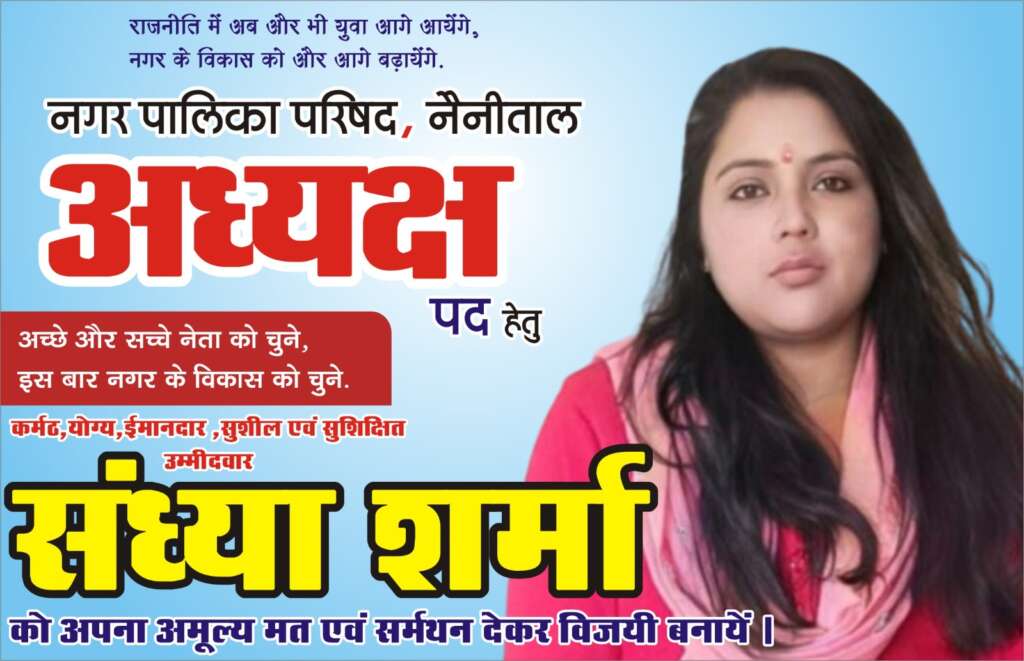

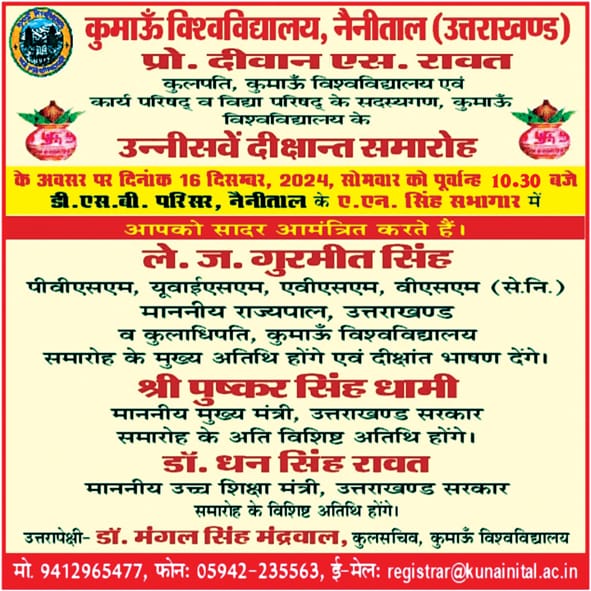

नैनी लाइव (Naini Live) के साथ सोशल मीडिया में जुड़ कर नवीन ताज़ा समाचारों को प्राप्त करें। समाचार प्राप्त करने के लिए हमसे जुड़ें -

Naini Live is a news portal which provides news across Uttarakhand and Madhya Pradesh. We do provide advertisement services as well.

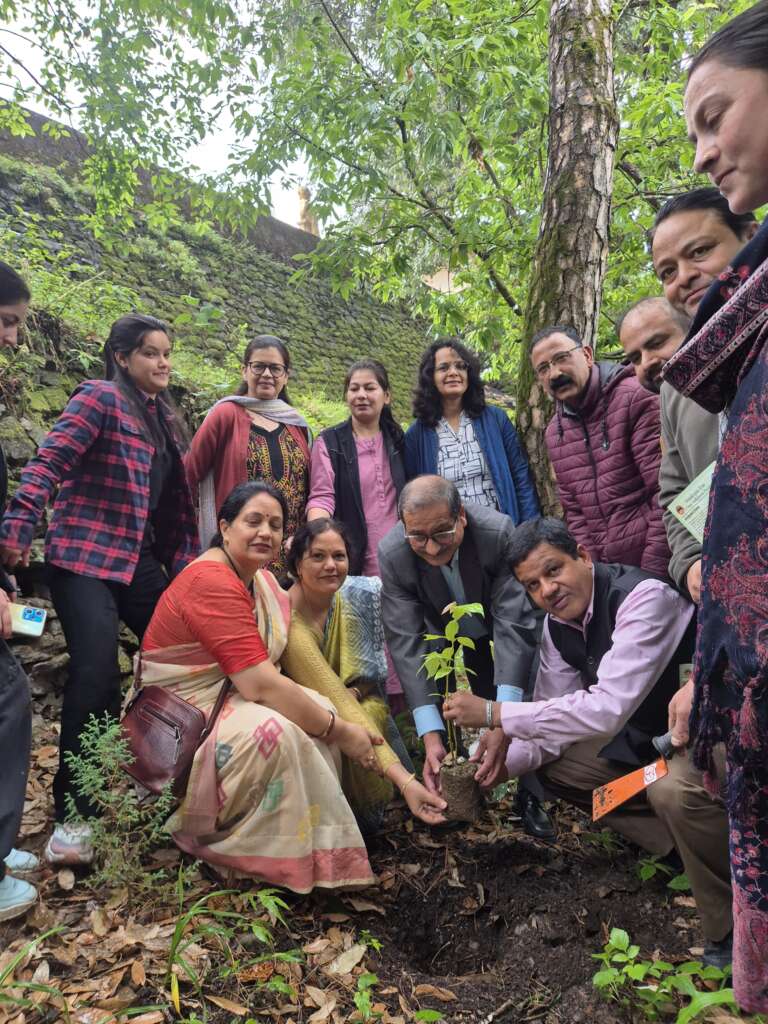 कुमाऊं विश्वविद्यालय के वनस्पति विज्ञान विभाग द्वारा विश्व पर्यावरण दिवस के अवसर पर आयोजित हुआ संवाद कार्यक्रम
कुमाऊं विश्वविद्यालय के वनस्पति विज्ञान विभाग द्वारा विश्व पर्यावरण दिवस के अवसर पर आयोजित हुआ संवाद कार्यक्रम 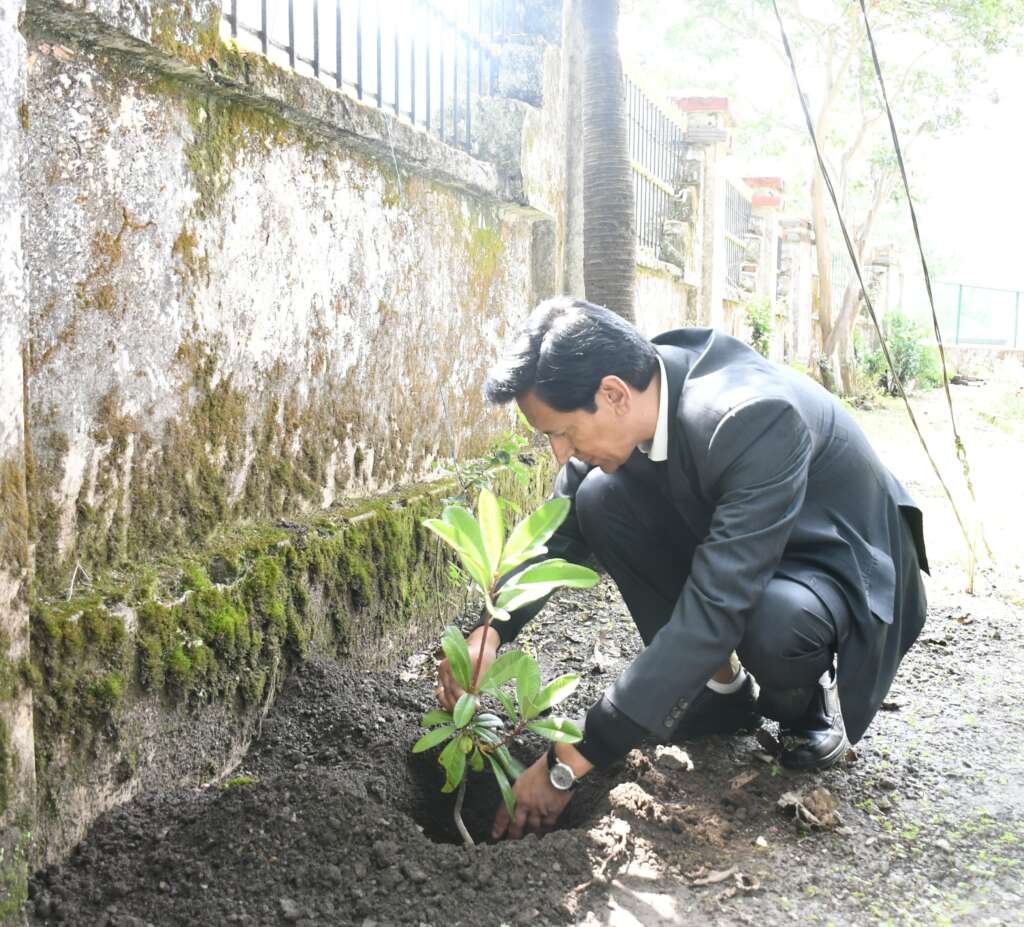 कुमाऊं आयुक्त दीपक रावत ने किया कमिश्नरी कार्यालय नैनीताल में पौधारोपण
कुमाऊं आयुक्त दीपक रावत ने किया कमिश्नरी कार्यालय नैनीताल में पौधारोपण 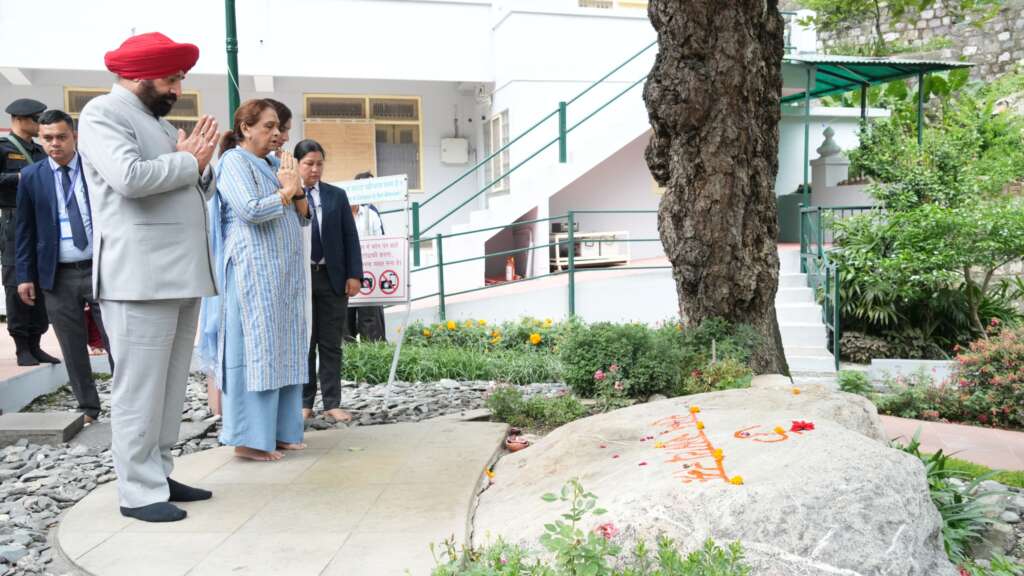 राज्यपाल ने किए कैंची धाम पहुँचकर बाबा नीम करौरी महाराज के दर्शन
राज्यपाल ने किए कैंची धाम पहुँचकर बाबा नीम करौरी महाराज के दर्शन 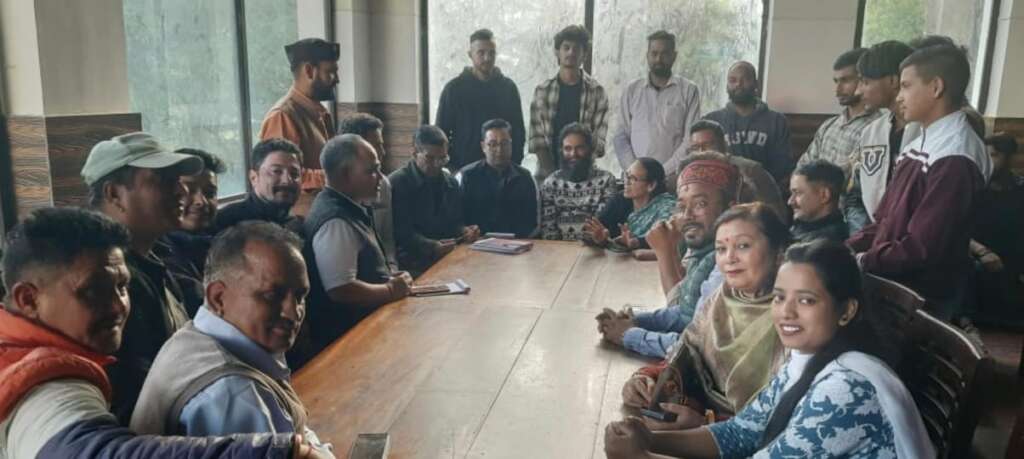 मुख्यमंत्री श्री पुष्कर सिंह धामी जी के स्वागत हेतु मंडल बैठक सम्पन्न, स्व. एन.के. आर्या मेमोरियल क्रिकेट कप 2025 के समापन व पुरस्कार वितरण कार्यक्रम की रूपरेखा तय
मुख्यमंत्री श्री पुष्कर सिंह धामी जी के स्वागत हेतु मंडल बैठक सम्पन्न, स्व. एन.के. आर्या मेमोरियल क्रिकेट कप 2025 के समापन व पुरस्कार वितरण कार्यक्रम की रूपरेखा तय 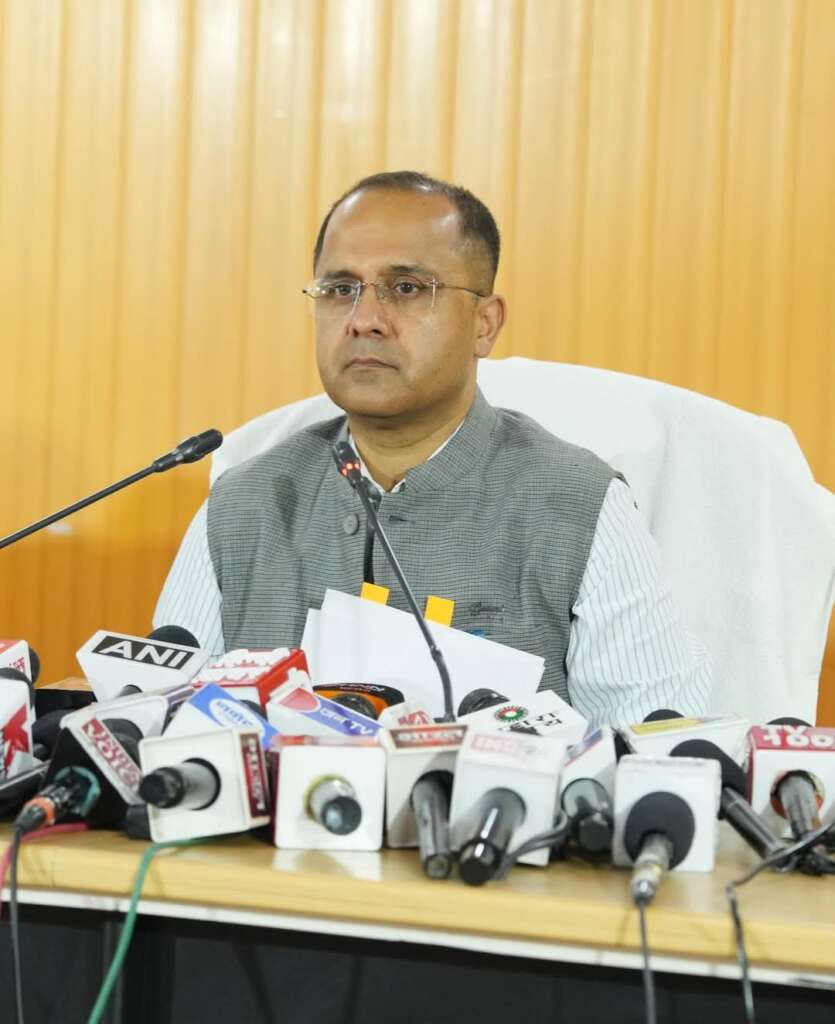 उत्तराखंड कैबिनेट ने लिए राज्य हित में कई अहम फैसले
उत्तराखंड कैबिनेट ने लिए राज्य हित में कई अहम फैसले